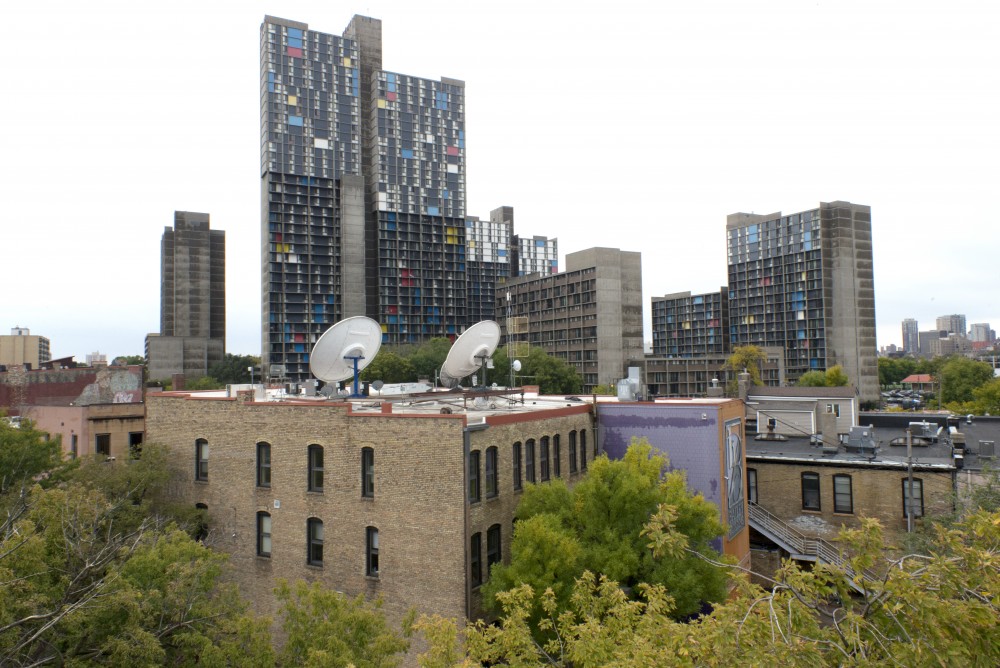Local state lawmakers are looking to install sprinklers in high-rises statewide after a deadly fire in a public housing property in their district.
Minneapolis DFL lawmakers Rep. Mohamud Noor and Sen. Kari Dziedzic introduced legislation late last month calling for residential high-rises 75 feet or more above a fire vehicle’s access to install automated sprinklers on every floor. Lawmakers hope the bill will prevent fires similar to the blaze in a Cedar-Riverside apartment building that killed five residents and injured four others, including a firefighter.
“These are critical maintenance repairs and upgrades that are needed to keep the people in public housing and other buildings safe,” Dziedzic said at a press conference Wednesday. “We don’t need anybody else to die — we can do this.”
The 14th floor of the Cedar High public housing building caught fire in late November. The 25-story building, owned and operated by the Minneapolis Public Housing Authority, only has automated sprinklers on its main floor and lower maintenance levels.
Retired St. Paul Fire Marshal Steve Zaccard said most fire department ladders can only reach up to six or seven stories, making sprinklers even more important in high-rise buildings.
“[Sprinklers] put water directly on the fire almost immediately — long before the fire department can even arrive,” Zaccard said at the press conference. “It only makes sense to sprinkle these high-rise buildings and protect the thousands of people that live in them.”
Lawmakers say options for funding federal and state government-owned properties include allocating money in the state’s bonding bill.
The backlog in critical improvements in Minneapolis public housing currently sits at $152 million, with sprinklers and related plumbing between $30 and $60 million, Dziedzic said.
Similar legislation was proposed and passed twice by the Legislature in the 1990s, but Gov. Arne Carlson vetoed both bills. Carlson has since come out and said failing to pass the bills was a mistake.
St. Paul Public Housing Agency, after 22 years and $8.3 million, was able to equip each of their 16 high-rises citywide with sprinklers in 2012. The Minneapolis 2020 city budget included money to MPHA that may go to building improvements.
“[The fire] should not have occurred if we had taken care of this issue almost 25 years ago,” Noor said. “So we are correcting a wrong that was done a few years back.”
The Cedar High apartments were built in 1970, decades before federal legislation required automated sprinkler installation in government-owned housing properties. Weeks after the fire, U.S. senators from Minnesota Amy Klobuchar and Tina Smith introduced the Public Housing Fire Safety Act, which mandates public office and residential buildings built before the 1992 law be retrofitted with sprinkler systems.
Noor and Dziedzic’s bill would require housing authorities and private building owners to send a letter of intent to the state fire marshal by August 2022 and have the equipment installed by August 2032. The timeline is designed to give owners sufficient time to comply and make implementation more feasible, Noor said.
“We have to give people a sense of safety in their homes” Noor said. “This is working to make sure that every Minnesotan has got a safe and secure place to live so that they don’t have to worry about sprinklers.”
The House public safety committee will hold a hearing on the bill Thursday.














